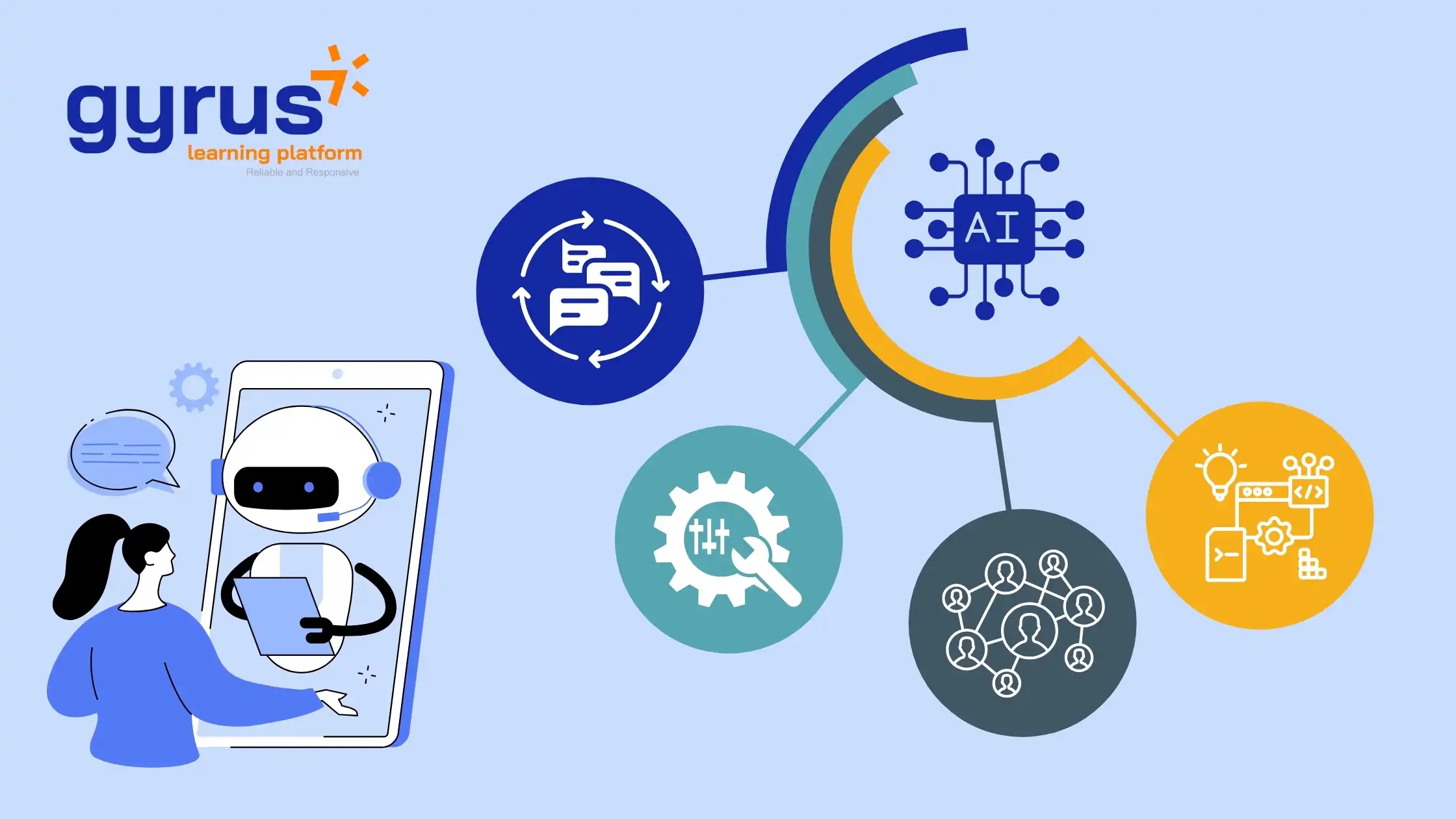Artificial Intelligence (AI) is revolutionizing the corporate learning and development space in ways that were once unimaginable. No longer just a buzzword, AI has become a powerful force in reshaping how companies train and develop their employees. As Josh Bersin states “Of all the domains to be impacted by AI, perhaps the biggest transformation is taking place in corporate learning. After a year of experimentation, it’s now clear that AI will revolutionize this space“.
Real-World Examples: The Impact of AI in Corporate Learning
Success Story: IBM’s Personalized Learning Paths
IBM stands as a prime example of how AI can revolutionize corporate learning. The company uses AI to create personalized learning paths for its employees. By analyzing an individual’s skills, past learning history, and career goals, the AI-powered platform tailors training content to meet specific needs. This approach has led to increased engagement and improved learning outcomes, as employees are provided with the right resources at the right time, making their learning journey more effective.
Cautionary Tale: AI Hallucinations in Course Content
However, the integration of AI in corporate learning is not without its pitfalls. In one example, a major corporation faced challenges when their AI-powered content creation tool produced course material that was not only inaccurate but also entirely fabricated—a phenomenon known as “AI hallucination.” The AI, designed to generate new training modules, mistakenly invented data and scenarios that had no basis in reality. This incident underscored the need for rigorous oversight and validation when using AI to create educational content. It serves as a reminder that while AI can greatly enhance learning, it also requires careful management.
The Role of AI in Personalizing Corporate Learning

- Tailoring Learning to Individual Needs
One of the most significant advantages of AI in corporate learning is its ability to tailor content to individual learners. AI algorithms can assess an employee’s performance, identify areas for improvement, and adjust the training material accordingly. This level of personalization not only boosts engagement but also improves knowledge retention and application.
- Real-Time Feedback and Adaptive Learning Paths
AI also excels in providing real-time feedback and creating adaptive learning paths. For example, if an employee struggles with a particular concept, the AI can offer additional resources or adjust the learning path to reinforce that area. This dynamic approach ensures that learning remains challenging yet achievable, keeping employees motivated and on track.
The Future of AI in Corporate Learning
Looking ahead, AI is poised to bring even more transformative changes to corporate learning.
Here are a few predictions:
- Predicting Future Learning Needs and Skills Gaps
AI’s ability to analyze vast amounts of data means it can predict future learning needs and skills gaps with remarkable accuracy. By tracking industry trends, job role requirements, and individual performance metrics, AI can forecast the skills that will be in demand and help companies proactively design training programs to meet those needs.
- Enhancing Collaboration and Social Learning
As AI continues to evolve, it could play a pivotal role in enhancing collaboration and social learning within organizations. For instance, AI-powered platforms might connect employees with similar learning goals or challenges, facilitating peer-to-peer learning and knowledge sharing on a global scale.
- Overcoming Challenges in AI-Driven Learning
Despite its potential, implementing AI in corporate learning comes with challenges. Data privacy concerns, technical integration issues, and the risk of AI errors like hallucinations are significant hurdles that companies must navigate.
- Ethical Considerations and Data Privacy
AI systems collect and analyze vast amounts of data, raising important questions about privacy and ethics. Companies must ensure that they have robust data protection measures in place and that they are transparent about how data is used.
- Technical and Integration Challenges
Integrating AI into existing learning systems can be complex and requires a strong technical infrastructure. Additionally, keeping AI-powered content up-to-date demands continuous monitoring and adjustment.
Conclusion: Embracing AI for a Competitive Edge
AI is more than just a trend; it’s a game-changer in the world of corporate learning. By leveraging AI, companies can create more personalized, effective, and scalable learning experiences that not only meet current needs but also prepare employees for the future. However, to fully realize these benefits, organizations must approach AI implementation with a careful, informed strategy that addresses both its potential and its challenges.
In the fast-paced business environment of today, companies that embrace AI in their corporate learning programs are not just staying competitive—they are leading the way.









